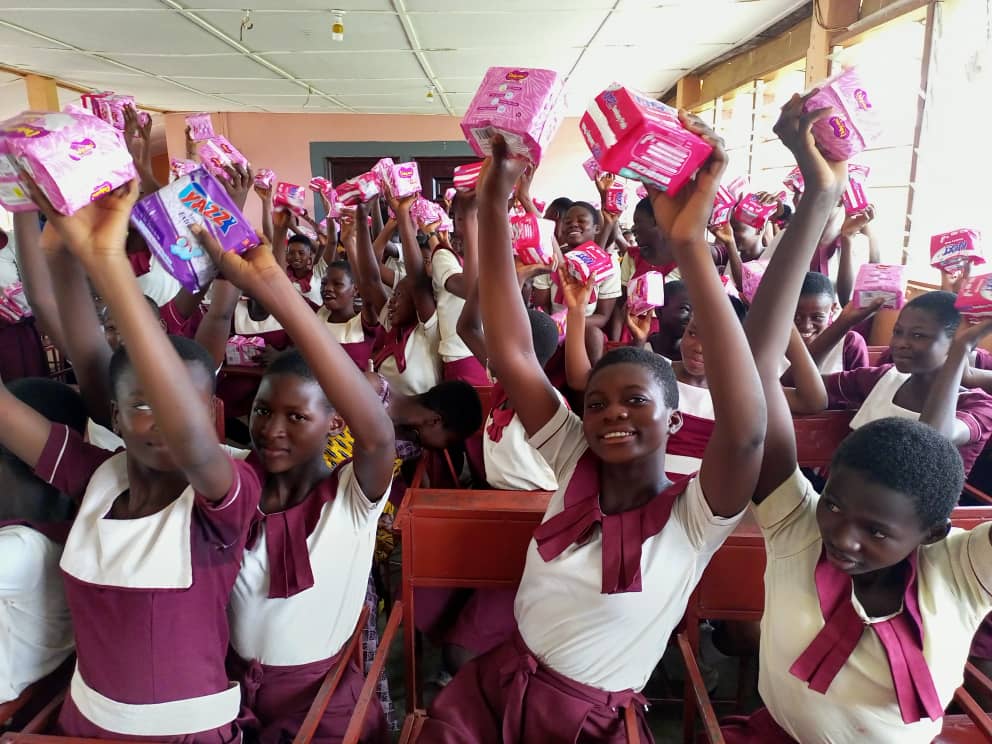Governments in Ghana have faced criticism for the significant tax burden they place on women’s sanitary products. The current government has recently been reminded frequently of its pledge to review the tax, a promise that has not yet been kept.
The New Patriotic Party government stated its intention to scrap the 20 percent luxury tax on imported sanitary pads if its mandate was extended by Ghanaians during the December 2020 polls.
The 20 percent levy exists because sanitary pads are categorised as luxury products per the Ghana Revenue Authority guidelines.
The Vice President Dr. Mahamudu Bawumia said the scrapping of the levy will reduce the cost of imported sanitary pads.
“We will eliminate import duties on sanitary pads to improve health conditions, particularly for girls. It is very important. What we intend doing is to make sure we produce sanitary pads in Ghana until that happens in their numbers, we are going to eliminate import duties to bring down their cost,” he said.
As Ghana joins the world to celebrate the International Women’s Day today, March 8, 2023, reminders have been sent to the government to work quickly to remove the tax component on the product.
Abigail Fati Abdulai, the Executive Director of the Widows and Orphans Movement, could not fathom buying a sanitary pad between Ghc18 and Ghc20.
“Now, sanitary pads are between Ghc18 and Ghc20. I work and earn a salary, and yet when I take that amount to buy a sanitary pad, it hurts. Imagine people who do not want. Last week I was in a community, and I asked the women—on average, 100 women—how many of them are able to afford sanitary pads. I couldn’t even get up to 2 percent of the number of people who could afford pads. The cost is a physical barrier preventing women from attaining these things.”
“The onus lies on the government to ensure that all these calls we are making aren’t one of those things that are thrown in the background but actually taken on board and critical decisions are put in place to ensure that women and girls are protected,” she said.
Raymond Ayinne, the External Affairs Manager for AfriKids added that “ideally, the sanitary pad should not come at a cost. This whole politics around whether they are luxury goods or not is unfortunate.”
“It is unacceptable for such a necessary commodity to have such a price tag. We are creating period poverty,” Mr. Ayinned added.
The aim of the IWD 2023 #EmbraceEquity campaign theme is to get the world talking about Why equal opportunities aren’t enough. People start from different places, so true inclusion and belonging require equitable action, according to internationalwomensday.com.
More on the theme
Equality versus Equity: What’s the difference as we #EmbraceEquity for IWD 2023 and beyond?
The words equity and equality are often used interchangeably.
Etymologically, the root word they share is aequus, meaning “even” or “fair” or “equal” – which led to equity being from the Latin aequitas, and equality from aequalitas. Yet, despite these similarities, equity and equality are inherently different concepts, and the IWD 2023 #EmbraceEquity campaign theme seeks to help forge worldwide conversation about this important issue and its impact.
So, what’s the difference between equity and equality – and why is it important to understand, acknowledge and value this?
The IWD 2023 #EmbraceEquity campaign theme seeks to get the world talking about why “equal opportunities are no longer enough” – and can in fact be exclusionary, rather than inclusive.
Source: A1radioonline.com|101.1MHz|Mark Kwasi Ahumah Smith|Ghana


